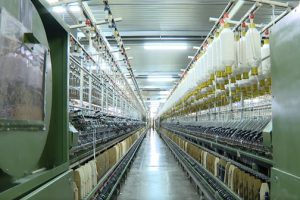
BY MENGISTEAB TESHOME
It is over and over said that Africa is a continent rich in natural resources and has great potential for economic growth. But in reality, all resources and potential are not yet fully exploited in the global market due to various challenges such as poor infrastructure, inadequate financing, political instability, and limited access to markets.
One way for Africa to overcome these challenges and become a champion in trade and investment in the global market is strengthening linkages and cooperation with different sectors of the economy, diversifying the economies, penetrating and enhancing participation in the regional and international economies among others is central.
It is high time for Africa to open the lid and step up linkages between and among different countries, and regions within Africa. This can be achieved through various means such as improving infrastructure, enhancing intra-African trade, promoting regional integration, and encouraging foreign investment.
Recently at a workshop took place in relation to African trade, State Minister in the Ministry of Trade and Regional Integration (MoTRI) Endalew Mekonnen said that Africa should exploit its opportunity to champion in trade and investment of the global market, trade and regional integration.
He further said that infrastructure is critical for economic development as it enables the movement of goods, services, and people from place to place. Africa has a huge infrastructure deficit, which hinders its ability to trade and attract investment. Therefore, investing in infrastructure is crucial for deeper linkages. This includes building roads, railways, ports, airports, and power plants. By improving infrastructure, Africa can reduce the cost of doing business, increase productivity, and attract investment.
Intra-African trade is currently low, accounting for only about 15 % of Africa’s total trade. This is largely due to the lack of infrastructure, high tariffs, and non-tariff barriers. However, by strengthening trade within the continent, Africa can reduce its dependence on external markets. This can be achieved by promoting regional trade agreements, harmonizing trade policies, and improving transport networks. For example, the African Continental Free Trade Area (AfCFTA), which came into effect in January 2021, aims to boost intra-African trade by creating a single market for goods and services across the continent.
Regional integration involves bringing together different countries to form a regional bloc with a common agenda. This can be achieved through free trade agreements, customs unions, and common markets. In such a way, Africa can enhance its bargaining power in the global market, increase economies of scale, and attract investment. The East African Community (EAC) and the Economic Community of West African States (ECOWAS) are regional blocs that have made significant strides in promoting regional integration.
Foreign investment plays a crucial role in economic development as it brings capital, technology, and expertise. However, Africa has not been able to attract as much foreign investment as other regions due to various challenges such as political instability, security concerns, and inadequate infrastructure. It is clear that promoting regional integration in Africa is a complex and challenging task that faces several obstacles. Some of the key challenges to promoting regional integration in Africa include:
The countries have different political systems, ideologies, and priorities, which can make it difficult to reach consensus on regional integration issues.
There are significant economic disparities among African countries, with some countries being much more developed than others. This can create tensions and make it difficult to agree on common policies and goals.
The continent has a significant infrastructure deficit, which can impede the movement of goods, services, and people across borders. This can make it more difficult to develop regional markets and supply chains.
Some African countries have implemented protectionist policies that restrict trade and investment, which can undermine efforts to promote regional integration.
The bureaucratic hurdles hamper cross-border trade and made investment complex and time-consuming, which discourages businesses from engaging in regional trade.
Implementing regional integration initiatives requires significant financial resources, which can be a challenge for many African countries that have limited budgets.
“Africa can be an opportunity of champion related to trade and investment in a global market,” he added.
He further said that it is important that Africa goes deeper and deeper particularly into continental market linkage through regional bloc such as AfCFTA.
Similarly, CEO of Investment Center of Africa, Abdinasir Turky said that Africa is the land of opportunities where creating conducive environment is crucial to unlock such opportunities, he pointed out.
For the CEO, the summit is pivotal to exchanging information, and discussing trade and investment opportunities in African countries as whole. Strong business environment partnership is also instrumental to realize the continent’s economic ambitions, he noted.
State Minister of Industry Hassan Mohammed for his part mentioned that the reform agenda which has been implemented here is a key in easing business doing in Ethiopia.
‘Let Ethiopia Produce’ movement is also one of the recent initiatives undertaken by the government to promote ample investment opportunities in the country, he indicated.
Investing in Ethiopia’s manufacturing, mining, agriculture and other emerging sectors and opportunities and economic challenges shaping Africa’s future were among the points of discussion at the one-day meeting.
To deepen Africa’s trade and investment, the international community also should engage in discharging its responsibility.
Africa needs regional economic integration, employing its opportunity to championing trade and investment of the global market.
One of the critical challenges facing Africa is inadequate financing. The international community can help address this challenge through various financing mechanisms, such as providing development assistance, grants, and concessional loans. The international community can also support African countries in accessing international capital markets and mobilizing private sector investment. These financing mechanisms can help address Africa’s infrastructure deficit and promote investment in key sectors such as agriculture, manufacturing, and energy.
The international community should pave the way to providing technical assistance to African countries to develop their capacity to engage in trade and investment. Technical assistance can take various forms, such as providing training, sharing best practices, and offering advisory services. The international community can also support African countries in implementing trade agreements and improving their regulatory frameworks to attract investment.
The international community should help African countries in letting them access international markets by promoting trade, reducing trade barriers, and providing preferential market access. This can help African countries diversify their exports and reduce their dependence on a few primary commodities. The international community can also support African countries in complying with international trade standards and regulations.
The international community also could support African countries in promoting investment by providing technical assistance, financing, and capacity building. The international community can also encourage private sector investment by promoting investment opportunities, mitigating investment risks, and providing investment guarantees.
In conclusion, the international community must play a significant role in deepening Africa’s trade and investment by providing financing, technical assistance, promoting trade agreements, facilitating market access, and supporting investment promotion. The international community’s support can help address the challenges facing Africa and unlock the continent’s potential for economic growth and development. By working together, Africa and the international community can create a more prosperous and integrated future for the continent.
African leadership should also open eyes to exploit the opportunities presented by partnerships with the United States, China, and Russia to deepen trade and investment with these countries. By negotiating fair deals, promoting investment opportunities, and developing infrastructure, African countries can benefit from closer cooperation with these partners. However, it is important that African leadership approaches these partnerships with a long-term perspective and ensures that the benefits of trade and investment are shared equitably among all stakeholders.
THE ETHIOPIAN HERALD SUNDAY EDITION 11 JUNE 2023




